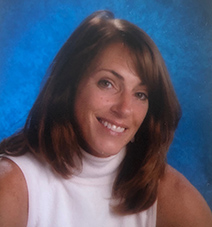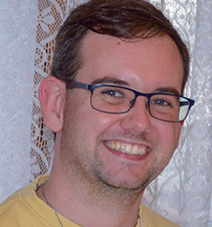Breakout Session, 11:00 am - 12:00 pm
Bridge to Success: Transition to College for Students with Visual Impairments
Session Overview
While up to 80% of students with visual impairments enroll in college, the "rate of persistence" to continue beyond the first year drops significantly, with up to 75% dropping out before completing a degree. High school may prepare disabled students academically, but it often either provides so much 1:1 support that students come to college with little capability to function effectively on their own, or it does not provide the skills needed to successfully navigate college and workplace requirements. Dorm life is the first opportunity for most college age students to live independently, and this challenge can be especially acute for those who had been sheltered because of their visual impairment. This workshop reviews the "Bridge to Success" pilot program that supported legally blind students through their first year at college. Students lived on campus and were fully integrated into all college activities. Support included Orientation & Mobility, independent living and study skills training, Assistive Technology, a reduced course load, coaching and individualized support. Presenters will outline lessons learned and the surprising conclusion that extra support through the first college year may not in fact be the best approach to ensuring success for students with visual impairments and other challenges.
Objectives
After attending this session, participants will be able to:
- Describe a pilot collaborative effort between t Polus Center for Social & Economic Development, the MA Commission for the Blind and Assumption College, whose purpose was to immerse students with visual impairments and other challenges in the college experience with extra support. Understand the challenges faced by these three first-year college students and the "lessons learned" from the pilot project.
- Discuss the complex myriad of skills needed for succeeding in college and in the workforce, and independent life in general, and the challenges encountered when these skills are introduced too late, especially for students with disabilities who have received extensive aid during high school.
- Understand the social-emotional dilemmas faced by first-year college students with visual impairments as they struggle with forming new friendships, living away from home for the first time, and balancing the need to learn to do things for themselves with the skill of advocating for support.
- Describe technology issues encountered by students with visual impairments as they navigated university systems and classroom assignments, and minimum requirements needed for them to be successful in a college environment.
- Outline alternative approaches to helping students with disabilities prepare for a successful higher education experience.
Presenters
 Theresa E. Kane, Ph.D
Theresa E. Kane, Ph.D
Executive Director, U.S. Programs, Polus Center for Social and Economic Development, Inc.
Theresa E. Kane, Ph.D., is the Executive Director for U.S. Programs at the Polus Center for Social and Economic Development, Inc., a 501(c)3 non-profit organization whose mission is to support people with disabilities and other vulnerable groups in Massachusetts and around the world. Polus has been working with the MA Commission for the Blind since 2015, providing internships and employment supports for adult job seekers and pre-employment transition services for youth and young adults with visual impairments. Theresa spent more than ten years as a manager and OD consultant in a large multinational before founding the Academy of Professional Skills Development, a multinational corporate training and consulting firm. After serving as consultant and board member for the Polus Center for many years, Theresa joined the senior leadership team in 2005. She holds Ph.D. and Masters' degrees in Human & Organizational Systems from Fielding Institute, Masters' and Bachelors' degrees in Organization Behavior from Lesley University, and a Certificate in Non-Profit Administration from Suffolk University.
 Mayanne MacDonald Briggs, M.Ed
Mayanne MacDonald Briggs, M.Ed
Transition Counselor, Massachusetts Commission for the Blind (MCB)
Mayanne is currently the MCB Transition Counselor for Metro West, South Shore, North Shore and Merrimack Valley. Mayanne was formerly an itinerant Teacher of Students with Visual Impairments for 16 years and Assistant Director of Education Services for four years at the Carroll Center for the Blind. Mayanne earned her Bachelor’s degree in Psychology at University of Lowell, a Master’s in Education at Boston College and then returned for the TVI program there. She has been in the field of visual impairment as a teacher of students with visual impairments for 30 years and lectures and presents locally on topics relating to visual impairment and transition. Mayanne has served on her local school committee for nine years and has presented at the Massachusetts Association for School Committees on student learning and engagement.
 Billy O'Neill
Billy O'Neill
Rehabilitation Teacher, Massachusetts Commission for the Blind (MCB)
Billy O’Neill is currently the a rehabilitation teacher with MCB's Western MA region. Up until June, he was the MCB Transition Counselor for Western MA, and the greater Worcester area. Billy has worked for MCB since January 2013, after having received his bachelor’s degree in Human Services and M.A. in Rehabilitation Counseling at Assumption College.
In addition to his work at MCB, Billy has been an adjunct professor at Assumption in the Human Services and Rehabilitation Studies department, and is an organist and choir director in West Springfield, Ma.